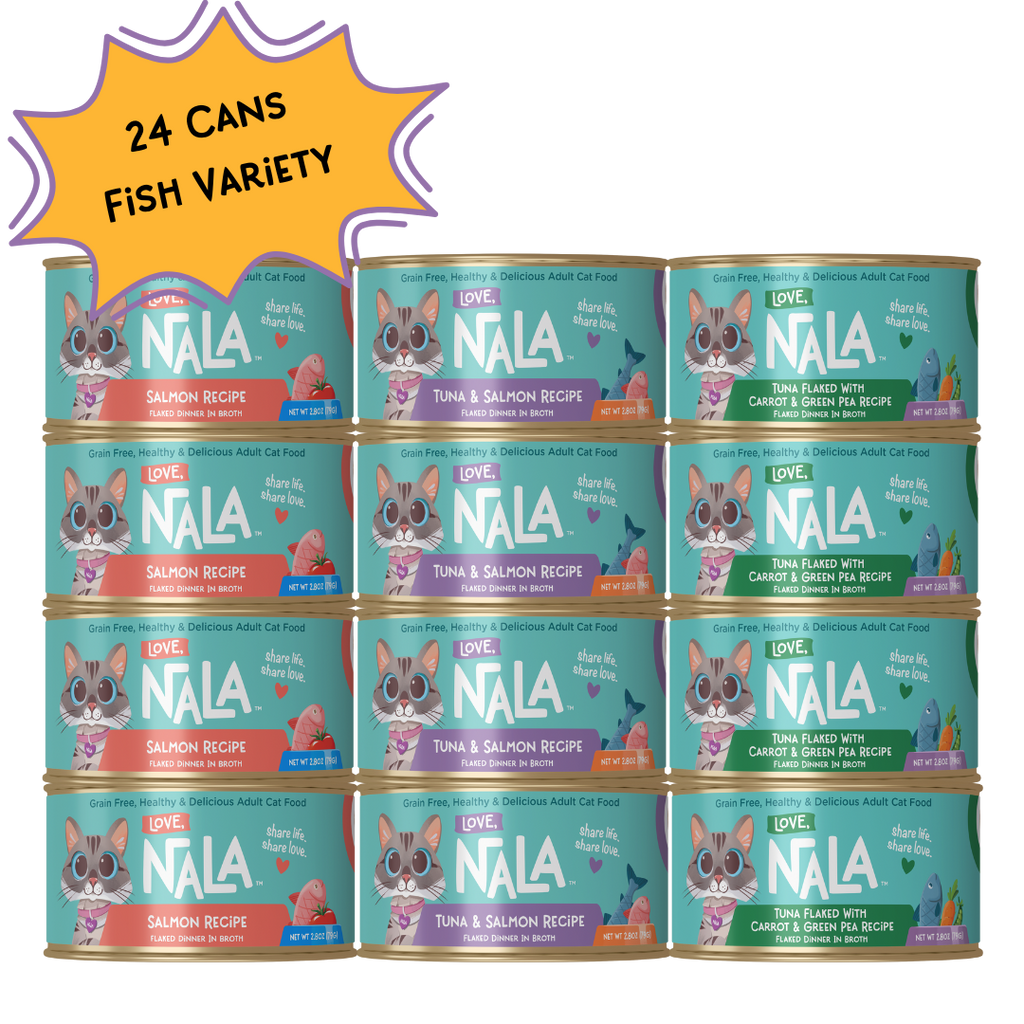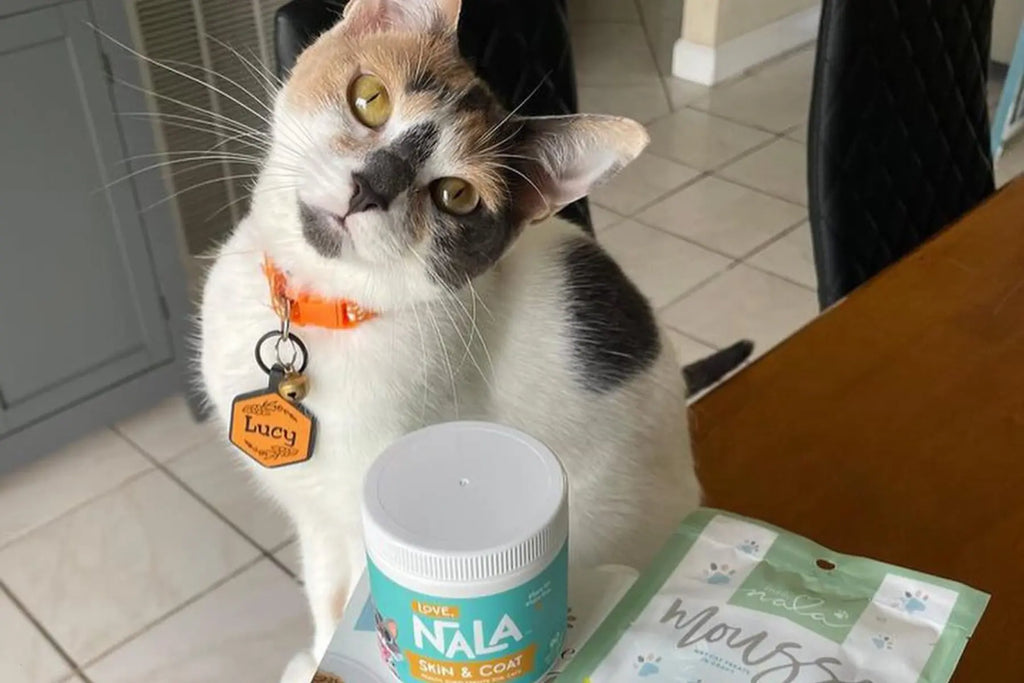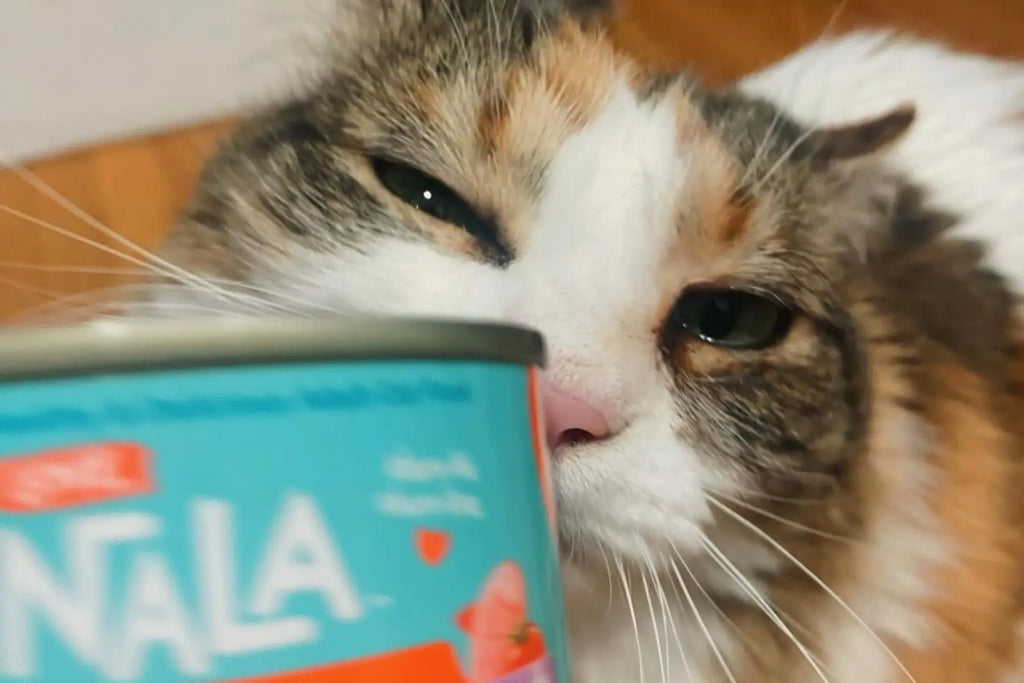Cats are beloved pets, and as pet owners, it's our responsibility to make sure they're healthy and happy. One of the essential aspects of cat care is choosing the right cat food. With so many options available, it can be overwhelming to determine which healthy cat food is the best for your furry friend. In this article, we'll discuss the different types available, their advantages and disadvantages, and how to choose the best cat food for your cat.

Types
Dry Cat Food
Kibble, is the most popular type. It's convenient, has a long shelf life, and is affordable. It is also good for your cat's dental health as it helps remove plaque and tartar from their teeth. Not all dry food is the same. Some brands may contain low-quality ingredients, fillers, and preservatives, which can be harmful to your cat's health.
Wet Cat Food
Also known as canned cat food, contains more moisture than dry food. It's an excellent option for cats who don't drink enough water. It is also rich in protein and contains high-quality ingredients. It's more expensive and has a shorter shelf life. You also need to be mindful of the amount you feed your cat, as it can lead to obesity and dental problems.
Semi-Moist
A type that's in between dry and wet cat food. It has a soft texture and contains more moisture. It's also more convenient, as it doesn't require refrigeration. These contain more sugar and salt than other types, which can be harmful to your cat's health.
Homemade
An option for cat owners who prefer to make their cat's food at home. These allow you to control the ingredients and ensure that your cat is getting a healthy diet. However, it's important to note that making these requires knowledge and research to ensure that your cat is getting all the necessary nutrients.
Prescription
Recommended by veterinarians for cats with specific health conditions. It's specially formulated to meet the nutritional requirements of cats with kidney problems, allergies, and other health issues. This is more expensive than other types of cat food and can only be purchased with a prescription from your veterinarian.
Ingredients to Look for
Meat and Meat Meal
When shopping for nutritious food products, particularly those that are rich in protein, it is crucial to thoroughly examine the ingredient list. Products that list high-quality protein sources prominently are generally more beneficial for health. Here are some specifics about common protein options you might find:
- Chicken: A versatile and widely consumed protein, chicken should ideally be the first ingredient in a product to ensure it is a significant part of the composition. It's low in fat compared to other meats, highly digestible, and rich in essential nutrients like phosphorus and selenium, which support various bodily functions including metabolism and immunity.
- Turkey: Like chicken, turkey is another excellent source of lean protein that offers a range of health benefits. It is particularly high in B vitamins, essential for energy production and brain health. Products listing turkey as the primary ingredient are often lower in calories and fat, making them a great choice for those managing their weight or seeking a healthier diet.
- Beef: Beef is a robust source of protein and is also rich in vital nutrients such as iron, zinc, and B vitamins. These nutrients are crucial for blood formation, immune response, and mental health. When beef is listed first, it indicates a product that is not only high in protein but also in other important nutrients that support muscle growth and overall health.
- Fish: Fish is not only a high-quality protein but also a prime source of omega-3 fatty acids, which are essential for heart and brain health. Products that feature fish as the main ingredient often provide additional benefits like improved cardiovascular health and better mental functioning. Including fish in your diet can be particularly beneficial due to its anti-inflammatory properties.
Choosing products with these proteins as primary ingredients can significantly impact your nutritional intake and overall health. Such choices support muscle repair, energy levels, and various critical physiological processes.
Taurine
Taurine is an indispensable amino acid for cats, crucial for several aspects of their health. Unlike some animals, cats cannot synthesize taurine adequately and must obtain it from their diet to prevent deficiencies that can lead to serious health issues, including heart disease and blindness. Taurine is primarily found in animal-based proteins, such as meat, fish, and poultry. Ensuring that a cat’s food includes adequate taurine is vital for maintaining healthy heart function, vision, and reproduction. Many high-quality commercial cat foods add extra taurine to meet these nutritional needs.
Fatty Acids
Omega-3 and omega-6 fatty acids play a crucial role in a cat's diet, primarily in supporting skin health and producing a shiny, healthy coat. These fatty acids act as anti-inflammatories, which can help reduce itching and irritation in the skin. Sources like fish oil, flaxseed, and chicken fat are rich in these essential nutrients and should be part of a balanced cat food. Omega-3 acids, particularly those from marine sources, also support cognitive function and joint health. Omega-6 acids, found in ingredients like chicken fat, help with growth and provide the energy cats need for daily activities.
Fiber
It helps keep the digestive system running smoothly by promoting healthy bowel movements and aiding in the regular elimination of hair ingested during grooming. Common sources of fiber in cat food include beet pulp, pumpkin, and psyllium, which are not only effective but also generally well-tolerated by cats. These fiber sources can help bulk up cat stool and reduce the occurrence of both diarrhea and constipation. When selecting a cat food, it's important to find one with a balanced amount of fiber, as too much can cause issues and too little can lead to digestive distress.

Types of Specialty Cat Food
Grain-Free Cat Food
This does not contain grains such as wheat, corn, or soy. It is a good option for cats with food allergies or sensitivities to grains. However, it's important to note that just because it is grain-free does not mean it's healthier. Some grain-free foods may contain other fillers and low-quality ingredients.
Organic Cat Food
Made from ingredients that are grown without the use of pesticides, synthetic fertilizers, or genetically modified organisms. This is a good option for cats with food sensitivities or for cat owners who prefer to feed their cats an all-natural diet. This can be expensive and may not be accessible to everyone.
Natural Cat Food
A type of cat food that does not contain any artificial preservatives, colors, or flavors. It is a good option for cat owners who prefer to feed their cats a diet free of artificial ingredients. It's still essential to read the ingredients list and ensure that the cat food contains high-quality ingredients.
Diet Cat Food
This is specially formulated for cats who need to lose weight or maintain a healthy weight. Diet cat food is low in calories and fat and contains high-quality protein to support muscle mass. This should only be fed to cats who need to lose weight or maintain a healthy weight. Feeding this to a cat who doesn't need it can lead to nutritional imbalances.
Choosing the Best Cat Food
Read the Ingredients List
As mentioned previously, when selecting food for your cat, it's crucial to scrutinize the ingredients list to ensure the inclusion of high-quality components. A thorough evaluation of the ingredients list helps you avoid foods with low nutritional value, ensuring your cat receives the nourishment it needs to maintain optimal health.
Consider Your Cat's Age and Health
Cats have varying nutritional needs at different stages of their lives, and these needs can be further influenced by specific health issues. For example, kittens require diets rich in calories and nutrients to support their rapid growth and development, while senior cats may need fewer calories to avoid weight gain but more fiber to aid digestion. If your cat has any health issues, such as kidney disease or diabetes, it's imperative to consult your veterinarian to choose a diet that supports health management. The vet can provide recommendations based on the latest research and their understanding of your cat’s specific health requirements, ensuring a tailored approach to nutrition that supports overall well-being.
Avoid Fillers and Artificial Ingredients
It's vital to choose products that promote longevity and prevent health issues, focusing on ingredients that contribute positively to their diet. Here are guidelines for choosing the right cat food:
- Avoid Fillers: Fillers like corn, wheat, and soy are commonly used in pet foods to bulk up the product inexpensively, but they offer minimal nutritional value. These ingredients can contribute to unnecessary weight gain and may cause digestive issues such as bloating and discomfort in cats. A cat food free from these fillers ensures that your pet is getting more of the high-quality proteins and nutrients it needs without the risk of these adverse effects.
- Shun Artificial Additives: Many cat foods contain artificial preservatives, colors, and flavors that can be detrimental to your cat's health. These chemicals might make the food look or taste more appealing, but they can contribute to allergic reactions, behavioral changes, and even long-term health problems such as cancers or organ dysfunction. By avoiding these artificial additives, you help ensure that your cat is consuming only wholesome ingredients that support their health rather than compromise it.
- Opt for Natural Preservatives: Natural preservatives such as tocopherols (a form of Vitamin E) or ascorbic acid (Vitamin C) are safer alternatives to chemical preservatives. These natural options help maintain the freshness of the cat food while also providing additional health benefits, like supporting immune function and acting as antioxidants.
- Choose Natural Colors and Flavors: Natural ingredients are less likely to cause adverse reactions and are generally considered safer and healthier. Moreover, natural flavors derived from high-quality sources such as real meats and fish provide better nutritional profiles and are more appealing to cats, ensuring they enjoy their meals without unnecessary chemicals.
It's about nurturing your cat with safe, beneficial ingredients that contribute to a healthy and active life. By following these guidelines, you can significantly enhance the quality of your cat's diet and overall health.
Consider Your Budget
The cost of cat food can vary significantly, and while it’s important to provide the best you can afford, a higher price does not always equate to higher quality. Be diligent in comparing ingredient lists rather than just prices. Affordable brands can sometimes offer superior ingredient quality over more expensive ones. It’s helpful to set a realistic budget for cat food and strive to find a product that balances cost with nutritional value. This often means avoiding the cheapest options, which may use low-quality ingredients, and the most expensive ones, which may include unnecessary premiums. The goal is to find a cost-effective food that provides your cat with the nutrients it needs without breaking the bank.
Try Different Brands and Types
It's beneficial to try various brands and types of food to discover what your cat prefers and what aligns best with their dietary needs. Observing your cat's reaction to different foods can provide insights into their preferences and any dietary sensitivities or allergies they may have. This trial-and-error process can be essential in finding food that your cat not only enjoys but also supports their health and vitality. Consider starting with small sample packs to minimize waste and cost until you find a brand and type that your cat thrives on.

Talk to Your Veterinarian
Consulting your veterinarian is a crucial step in choosing the right food for your cat. Veterinarians are equipped with the latest nutritional science and understand the specific needs related to your cat’s health, age, and lifestyle. They can provide personalized recommendations and help you navigate the various food choices available. As emphasized before, this is especially important if your cat has specific health issues or dietary requirements.
Choosing the best cat food for your cat can be overwhelming, but with a little research and consideration, you can find one that meets your cat's nutritional needs and fits within your budget. Remember to read the ingredients list, consider your cat's age and health, choose the right food, avoid fillers and artificial ingredients, consider your budget, try out different brands and types of cat food, and talk to your veterinarian. By following these tips, you can ensure that your cat is eating a healthy and nutritious diet.




















